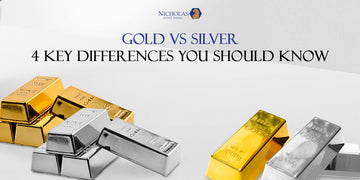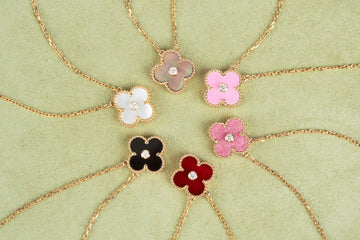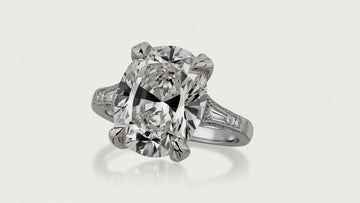
Are you searching for ways to prepare for uncertain times ahead? Consider investing in precious metals like gold and silver. Discover what you need to know about investing in these valuable resources.
Both gold and silver can serve as a hedge in economic downturns and periods of rising inflation. It is crucial to understand the distinctions in their usage, economic sensitivities, and technical characteristics to determine which metal is best for your portfolio. Explore the benefits of gold and silver and make informed decisions to optimize your investment strategy.
Here are four factors to consider when deciding to invest in gold or silver:
1. Silver May Be More Tied to the Global Economy

According to the World Silver Survey, approximately half of all silver is utilized in heavy industry and high technology sectors such as smartphones, tablets, automobile electrical systems, and solar-panel cells. This makes silver more susceptible to economic changes compared to gold, which is primarily used for jewelry and investment purposes. As economies flourish, the demand for silver tends to increase. Explore the numerous applications and products where silver plays a vital role in the world of industry and technology.
2. Silver Is More Volatile than Gold
Silver prices can exhibit two to three times higher volatility compared to gold on a given day. Although this volatility can be advantageous for traders, managing portfolio risk becomes challenging. Stay informed about silver price fluctuations to make informed investment decisions.
3. Gold Has Been a More Powerful Diversifier than Silver:

Silver can be a valuable addition to your investment portfolio, providing diversification with a moderate positive correlation to stocks, bonds, and commodities. However, when it comes to diversification, gold takes the spotlight. It consistently shows no correlation to stocks and exhibits very low correlations with other major asset classes. The reason behind this lies in gold's limited industrial uses, which makes it less vulnerable to economic downturns compared to silver and base metals commonly used in industries. Invest in gold for a stronger diversification strategy with long-term stability.
4. Silver Is Currently Cheaper than Gold
Silver is often more affordable than gold per ounce, making it a popular choice among small retail investors who want to own physical precious metals. Invest in silver for accessible and valuable assets.
How You Can Invest in Gold and Silver
Gold and silver have become popular investment choices due to their availability in various forms. Explore the different investment options for these precious metals.
- Physical Metals: Investing in gold and silver provides the opportunity to own physical assets, such as bars and coins, either through a Nicholas Estate Buyers brokerage account or as American Eagle coins in a retirement account. Third-party depositories securely hold the metals, allowing investors the option to take physical delivery for self-storage. Explore the benefits of gold and silver investments at Nicholas Estate Buyers.
While holding bars and coins can have drawbacks, it's important to consider a few factors. Investors may pay a premium over the metal spot price on gold and silver coins due to manufacturing and distribution markups. Additionally, storage and insurance costs should be taken into account. Explore the pros and cons of holding bars and coins for investment purposes, considering factors like premiums, storage, and insurance costs.

- Exchange-Traded Funds : ETFs have gained popularity among investors as a convenient way to invest in gold and silver. Unlike physical assets, ETFs eliminate the need for storage and can be easily purchased and held in a traditional brokerage account. The fund's operator manages the costs associated with holding the physical supply of gold or silver and charges an expense ratio. However, it's important to note that investing in an ETF does not provide direct access to the underlying metals. Additionally, certain precious-metal ETFs may be subject to collectibles tax and do not qualify for lower long-term capital gains rates. Explore the benefits and considerations of investing in ETFs for gold and silver exposure.
- Mining Stocks and Funds: Investors can find lucrative opportunities in owning stocks of gold and silver mining companies or investing in mutual funds with diversified portfolios of these miners. Explore the potential of these precious metals and maximize your investment gains.
Get in touch with your Nicholas Estate Buyers Financial Advisor to explore the potential benefits of adding gold or silver to your investment portfolio. Discover how these precious metals can help you achieve your long-term financial goals. Contact us now for expert advice and guidance.





